
Beekeeping Beehive Equipments Bee Tools EPS Queen Nuc Box 8 Frames Bee Mini Mating Nuc Plastic Beehive
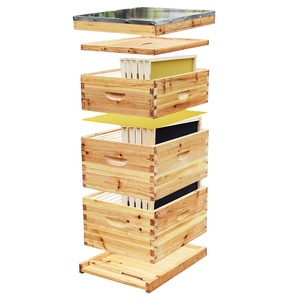
Hive Frame Benefitbee Langstroth Beehive Kit Bee Hives Complete Beekeeping Bee Hive Kit With 10 Frames

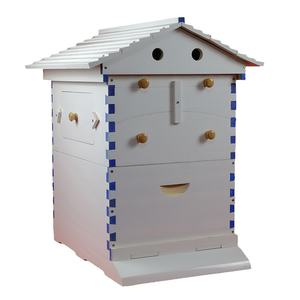
Beekeeping Honey Flow Frames Automatic Flows Hive Automatic Bee Hive


OEM Factory Langstroth Bee Hive Kit Beekeeping Equipment Wooden Beehive


pine or fir wood typical langstroth wooden beehive bee hive honey box bee hive

2023 Hot Sale Wooden Bee Hive Box Honey Automatic Auto Self Flowing Beehive for Honey Bees

7 Pcs Automatic Wooden Hive Honey Auto Self Flowing Beehive for Honey Bees
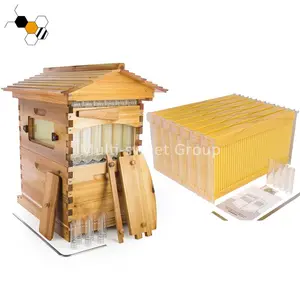
Flows Beehive & 7 Auto Frames China Fir Wax Coated Self Flowing Hive Automatic

Honey Beekeeping Equipment High Quality Cheap Price 10 Frame Langstroth Wax Coated Bee Hive Langstroth Beehive

10 Frames Beekeeping Equipment One -Layer Tool Wax-Coated Cedar Wooden Bee Hive

Beekeeping tools OEM available Rapid Top Hive Round Plastic Bee Feeder Beekeeping Feeding Apiculture Equipment Tool Supplies

High quality fir wood honey bee hives for sale, wooden bee hives

2024 Hot Sale 6L and 4L Bee Hive Feeder Best Price Plastic Bee Feeder for Water Beekeeping Tools

bee hive feeder beekeeping plastic bee feeder

Stainless Steel Bee Hive Honey Fork Scrapers
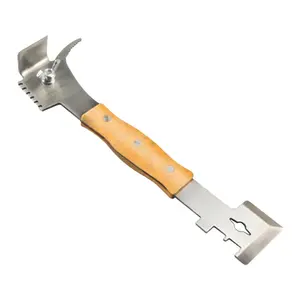
Multifunctional Stainless Steel Bee Hive Scraper Tool with Wooden Handle

AM-BHP2 Insulated farm agriculture 10 frames plastic honey bee beekeeping hives

Plastic Comb Foundation Plastic Wholesale Langstroth Bee Hive Plastic Frame with Comb Foundation with Good Price

Hive Wooden Handle 21cm | Stainless Steel Beekeeping Hive Tool Hook Bee Frame Lifter And Ser Equipment | Uncapping Hive Tool

Wholesale Langstroth bee hive frame with comb foundation

2020 beekeeping tools Stainless steel dermis leather honey hot bee hive smoker for beekeeper

BAQIAN Beekeeping Equipment Hive Accessories Wholesale Bee Frames with Beeswax Foundation Sheet Wood Beehive Frame

Hot selling keeping bee house bee box wooden bee keeping equipment
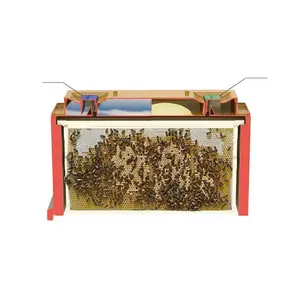
Beekeeping Equipment 2 Layers Bee Hives Boxes 10 Frame Plastic Beehive Insulated Bee Hive
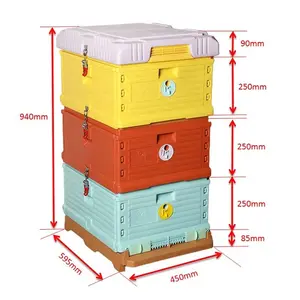
Most Convenient And Efficient Bees Honey Farm Beehive Box For Beekeeping Equipment

Chinese Commercial Wooden Auto Flowing Bee Hives House Box Automatic Honey Harvesting Flowing Beehive

Langstroth Beehive Best price 2 layers 10 frames langstroth bee hive

Newly Designed Auto Beehive Wood Bee Box Convenient Flow Hive for Honey Bees for Farms Beekeeping Retail and Home Use

6.5L plastic black bee hive frame feeder with wood lid bee feeder
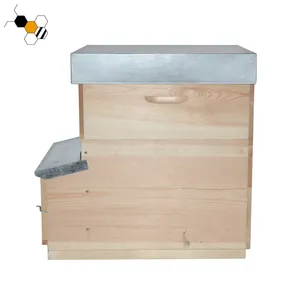
New Italy beehive wooden bee hive for bees manufacture
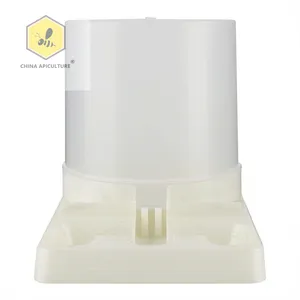
Beekeeping tools OEM available Bee Feeder New Style Hive Entrance Water Feeding Beekeeping Apiculture

Bee Hive Scraper Beekeeping Stainless Steel with Wooden Handle

Beekeeper Stainless Steel Bee Claw Hive Scraper Beekeeping Tool Pry Equipment

AM-BH2 Factory Supplying Beekeeping Machines Bee Hive Tool Price 15 White Provided Beehive

2020 Nuc bee box beehive price plastic bee hives

Bee keeping hive accessories factory supplies honey beeswax and bee wax foundation sheet for sale

Factory mass production china manufacture plastic bee box beehive


































 浙公网安备 33010002000092号
浙公网安备 33010002000092号 浙B2-20120091-4
浙B2-20120091-4